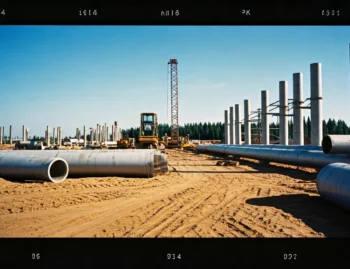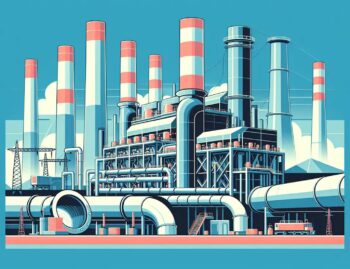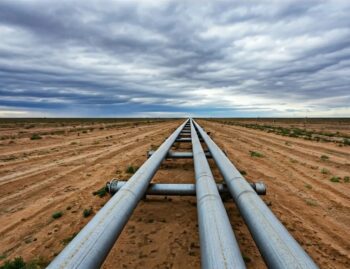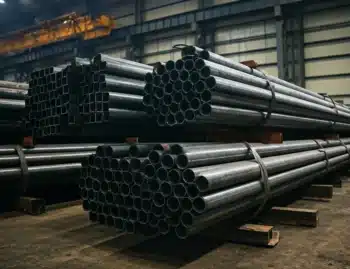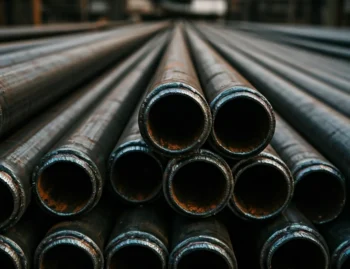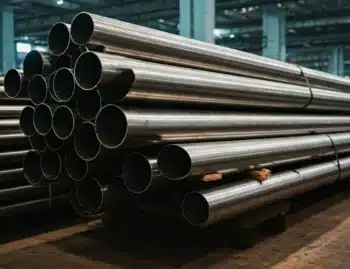
Stainless steel is a versatile and durable material widely used across various industries. Its reliability and strength make it a go-to choice, especially in industrial tubing applications. But what makes stainless steel so special in these scenarios? In this blog, we’ll explore the reasons behind its preference and uncover the benefits it brings to the table.
Durability and Longevity
Stainless steel is renowned for its durability. It can withstand harsh conditions, including extreme temperatures and pressures, making it ideal for industrial tubing. This longevity translates into fewer replacements and repairs, providing a cost-saving advantage over time.
In industries like chemical processing, where equipment endurance is critical, using stainless steel tubes can significantly enhance operational efficiency. With stainless steel’s superior resistance to wear and tear, the chances of equipment failure are minimized, ensuring that industrial processes remain uninterrupted. This durability is not only a technical asset but an economic one as well, as it supports continuous production cycles without frequent interventions.
Corrosion Resistance
One of the standout features of stainless steel is its impressive resistance to corrosion. In industrial environments where exposure to chemicals and moisture is frequent, stainless steel tubing maintains its integrity and does not corrode easily. This property is crucial in ensuring the safety and efficiency of industrial processes.
Corrosion can be a silent yet devastating cause of industrial equipment failures. Unlike other materials, stainless steel forms a passive film that protects its surface from external elements. This protective layer allows stainless steel tubes to perform optimally in environments where humidity and corrosive substances would quickly degrade other metals. In the oil and gas industry, for example, where pipelines are exposed to both natural elements and corrosive chemicals, stainless steel’s resistance to corrosive attack ensures that operations can proceed smoothly without unexpected disruptions.
Strength and Versatility
The strength of stainless steel allows it to support significant loads and pressures without deformation. Moreover, its versatility means it can be tailored to meet specific industrial requirements, whether in food processing, oil and gas, or pharmaceuticals. This adaptability ensures it meets the unique demands of varied industrial applications.
Its remarkable strength doesn’t just stop at load-bearing capacities. Stainless steel tubes are also able to withstand thermal changes without compromising structural integrity. In heat-sensitive industries, such as food processing, this feature is invaluable, as it ensures that the tubes maintain their shape and function across different temperature zones. Moreover, its ability to be fabricated into various shapes and sizes makes it a preferred choice for custom industrial solutions. This flexibility combined with durability is why stainless steel manages to outshine many other materials in demanding industrial setups.
Cost-Effective in the Long Run
While stainless steel may have a higher initial cost compared to other materials, its durability and low maintenance needs make it more cost-effective over time. The minimal need for repairs and replacements reduces the overall expenditure, making it a financially wise investment for industries.
Investing in high-quality stainless steel can result in significant cost savings over the lifespan of industrial equipment. Although the upfront costs might be higher, the decreased expenses related to maintenance, downtime, and replacements often make up for the initial investment. This financial prudence is particularly appealing in sectors where operational margins are thin, and equipment reliability plays a crucial role in business performance. Therefore, stainless steel’s capability to offer long-term savings often makes it the material of choice for many industrial projects.
Environmental Impact and Recyclability
Stainless steel is not only beneficial for its performance but also for its environmental impact. Being 100% recyclable, it promotes sustainability and reduces ecological footprints. This aspect resonates with industries aiming to adopt greener practices and reduce waste.
Today, industries are increasingly focused on sustainability and eco-friendly practices. The recyclability of stainless steel plays a significant role in these efforts, as it can be repurposed without any loss in quality, which contrasts with many other materials. In fact, about 60% of stainless steel is made from recycled material, significantly lowering the environmental impact of production. Choosing stainless steel for industrial applications aligns businesses with global sustainability goals, contributing to a more circular economy and reflecting a commitment to environmental stewardship.
The Unmatched Benefits of Stainless Steel in Industrial Tubing
Stainless steel stands out as the preferred choice for industrial tubing applications due to its remarkable advantages, such as corrosion resistance, strength, and cost-effectiveness. Its long lifespan and maintenance-friendly nature further contribute to its popularity in various industries. By understanding these benefits, businesses can ensure they are making the right decisions when selecting materials for their applications, leading to efficient and sustainable operations.


